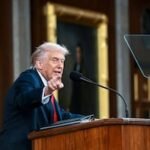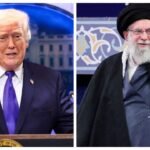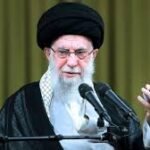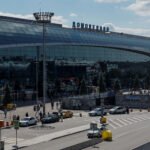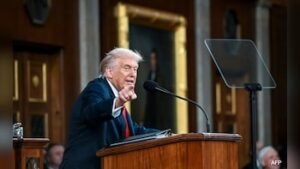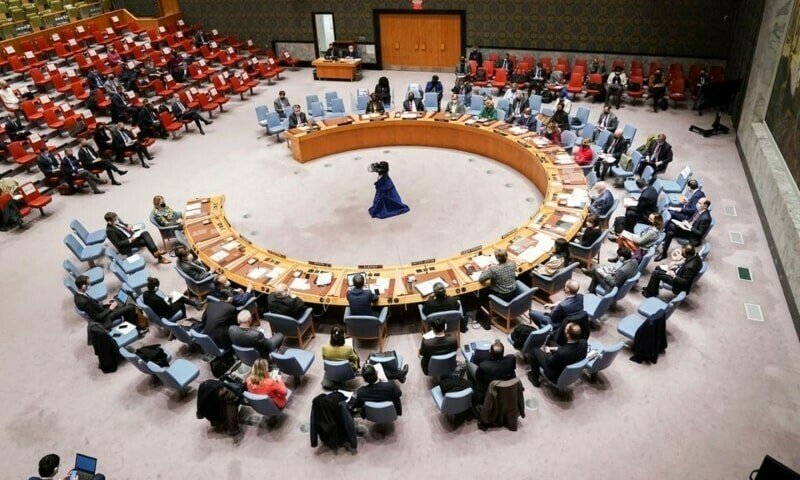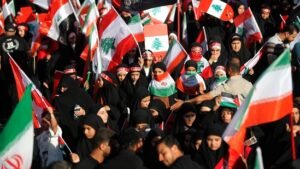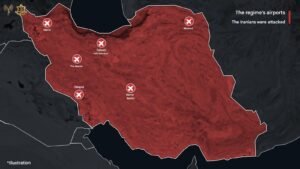Amid escalating tensions in the Middle East, Iran’s global allies Russia, China, and Pakistan Sunday circulated a joint draft resolution calling for an “immediate and unconditional ceasefire” in the region, urging all parties to protect civilians, respect international law, and return to negotiations.
The draft resolution was circulated in an emergency session of the UN Security Council, requested by Iran. While the resolution avoids naming specific nations, it includes a condemnation of attacks on nuclear facilities—a provision likely to draw opposition from the United States.
“China, Russia, and Pakistan proposed a draft UN Security Council resolution on the situation in Iran, calling for an immediate and unconditional ceasefire, protection of civilians, respect for international law and engagement in dialogue and negotiation.
We call upon Security Council members to support the draft resolution, and enable the Council to play its due role for the maintenance of international peace and security,” the Chinese MFA wrote on X Monday.
China, Russia, and Pakistan proposed a draft UN Security Council resolution on the situation in #Iran, calling for an immediate and unconditional ceasefire, protection of civilians, respect for international law and engagement in dialogue and negotiation.
The resolution will be open to comment through Monday. A vote has not yet been scheduled. To pass, it must receive at least nine affirmative votes and no veto from any of the Council’s five permanent members—the US, UK, France, Russia, and China.
The strikes, which U.S. President Donald Trump described as having “obliterated” key Iranian nuclear sites, mark the largest military assault on the Islamic Republic since the 1979 revolution.
Addressing the Council, U.N. Secretary-General António Guterres issued a warning: “The bombing of Iranian nuclear facilities by the United States marks a perilous turn in a region that is already reeling. We now risk descending into a rathole of retaliation after retaliation.” Guterres then called for an immediate halt to hostilities and a renewed commitment to diplomacy, particularly around the Iran nuclear deal.
The head of the International Atomic Energy Agency (IAEA), Rafael Grossi, briefed the Council on the physical impact of the attacks. He confirmed visible craters at Iran’s heavily fortified Fordow enrichment facility and reported damage to tunnel entrances at the Isfahan nuclear site, as well as renewed strikes on Natanz, a longtime focal point in Iran’s nuclear programme. Despite the destruction, Iran informed the IAEA there has been no off-site radiation increase.
“Armed attacks on nuclear facilities should never occur. Such actions could result in radioactive releases with grave consequences within and beyond the borders of the attacked state,” Grossi said.
Iran’s U.N. Ambassador Amir Saeid Iravani condemned the strikes as “a blatant and unlawful act of aggression” and accused the U.S. of “waging war under a fabricated and absurd pretext—preventing Iran from acquiring nuclear weapons”. He further criticised the misuse of the Nuclear Non-Proliferation Treaty, claiming it has been “manipulated into a political weapon”.
In contrast, Israel’s U.N. envoy Danny Danon praised Washington’s actions. “This is what the last line of defense looks like when every other line has failed,” Danon said, warning that a nuclear Iran would be catastrophic for global security. He dismissed accusations of aggression, instead calling for “appreciation and gratitude” for efforts to neutralise perceived threats.
While the U.S. is unlikely to support the proposed resolution, it has defended its decision as necessary. Acting U.S. Ambassador to the U.N. Dorothy Shea told the Council that Iran has long deceived the world about its nuclear ambitions. “The Iranian regime cannot have a nuclear weapon,” she said. “We acted decisively when diplomacy was exhausted.”
Russia and China offered strong rebukes. Russia’s Ambassador Vassily Nebenzia invoked the memory of the 2003 U.S. invasion of Iraq, cautioning against “another war based on US’ fairy tales”.
“Again, we’re being asked to believe the U.S’s fairy tales, to once again inflict suffering on millions of people living in the Middle East. This cements our conviction that history has taught our U.S. colleagues nothing,” he said.
China’s Ambassador Fu Cong added, “Peace in the Middle East cannot be achieved by the use of force. Diplomatic means to address the Iranian nuclear issue haven’t been exhausted, and there’s still hope for a peaceful solution.”
Pakistan’s UN Ambassador Asim Iftikhar Ahmad, on his part, pushed for “urgent diplomacy and dialogue to resolve the Iranian nuclear issue peacefully.”

